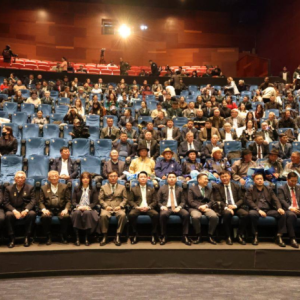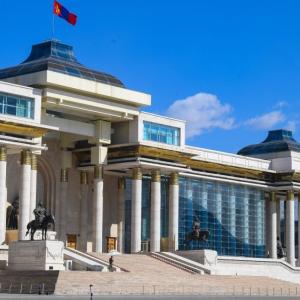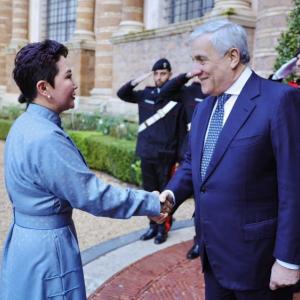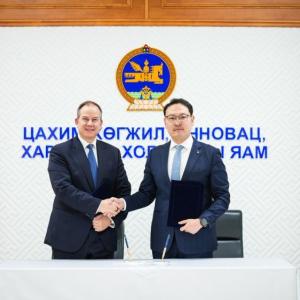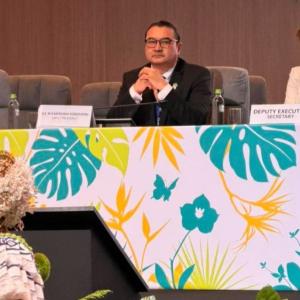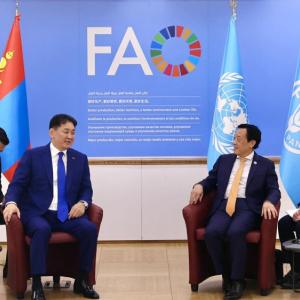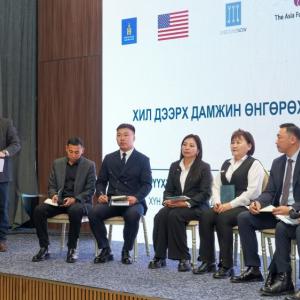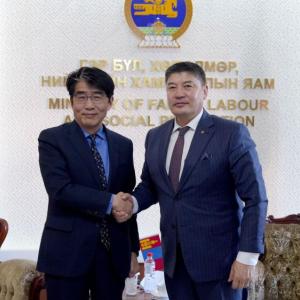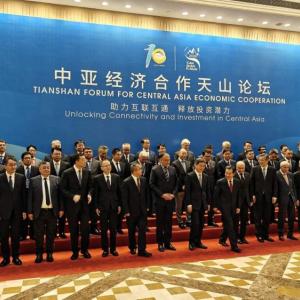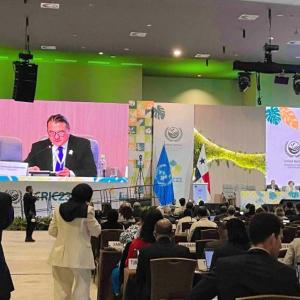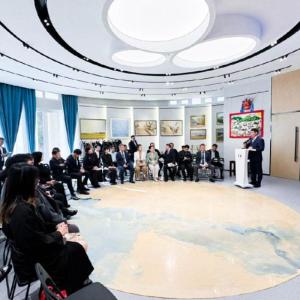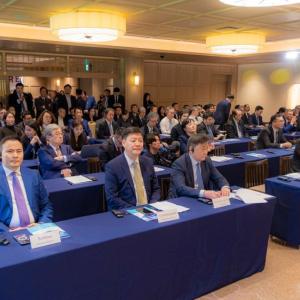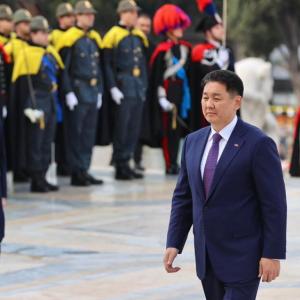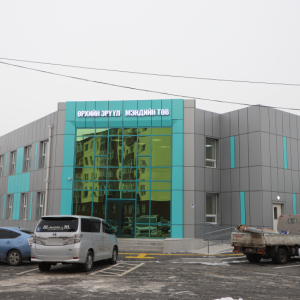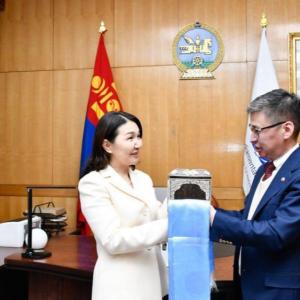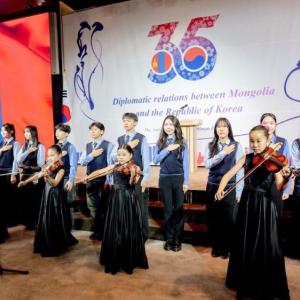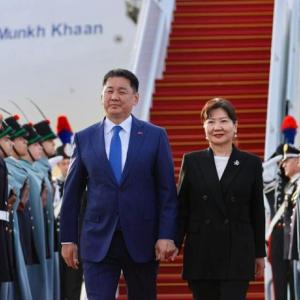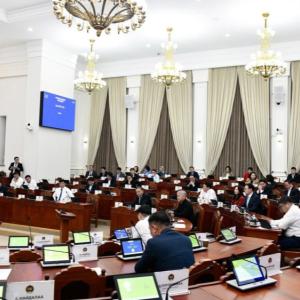Implementation of the Gender Equality Law Discussed
Society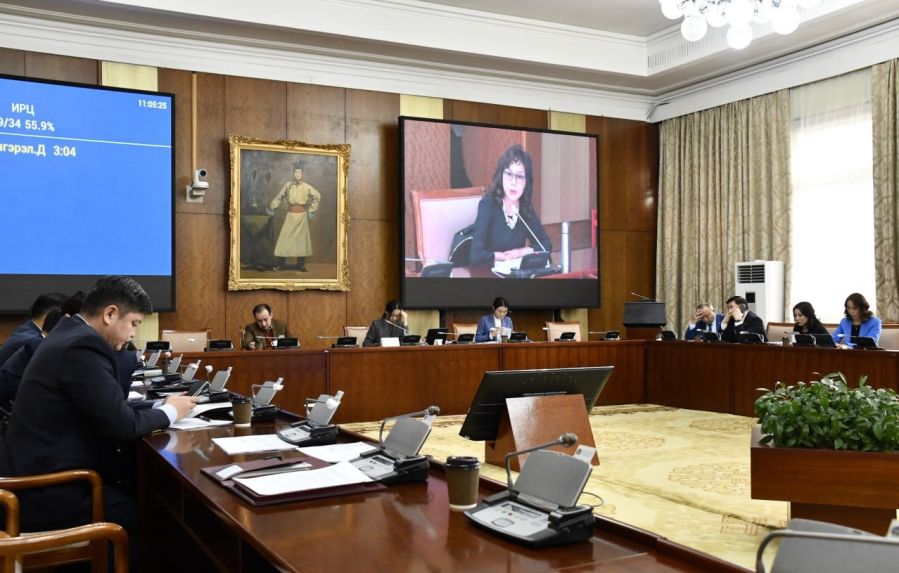
Ulaanbaatar, December 14,
2023 /MONTSAME./ The
Standing Committee on Social Policy in cooperation with the Standing Committee
on Justice of the State Great Khural organized a meeting to discuss the report
on the implementation of the Gender Equality Law on December
12, 2023.
Minister of Mongolia and Chairman of the National
Committee for Port Revival B. Tulga presented a report on the policies and
measures taken by the government in 2021 and 2022 to ensure gender equality. He
noted the progress made over the past two years. According to the Women,
Business and the Law Report by the World Bank, Mongolia is among the 20
countries which made progress having score of 90.6 out of 100. The World
Bank’s annual report analyzes laws and regulations affecting women’s economic
opportunity in 190 economies.
Also, Mongolia was ranked 70th out of 145 countries by
the World Economic Forum's Global Gender Gap Report 2022.
Minister B. Tulga stated that following the recommendations of the National
Voluntary Report 2023 on Sustainable Development Goals, the Government of
Mongolia is implementing two national programs, one strategic plan, and gender
programs in 15 sectors, the capital city, 21 aimags and 9 districts of the
capital. In addition, the National Committee on Gender Equality is
implementing the 2022-2031 Intersectoral
Gender Equality Strategy.
Minister B. Tulga noted that according to the analysis and
assessment of the gender situation in 2019, the gender gap remains across all
sectors and levels. According to the report, a national framework for
enhancing gender equality, implementation of gender-sensitive policy
planning, implementation, reporting, monitoring and evaluation, and gender
research are under implementation and gender-responsive budgeting and financial
management are poor. Sectoral
and cross-sectoral policies including “Regulations
in support of inclusive education”, “Maternal and child healthcare and
reproductive health” and “Action
plan to reduce the gap in life expectancy between men and women” implemented at 70-90 percent during the pandemic, producing concrete results.
Minister B.
Tulga presented the plans
to expand and improve the use of gender-disaggregated data and statistics
within gender studies and align the legislation related to development policy and asset allocation to ensure gender equality.
Deputy Minister for Labour and Social Protection S. Zulpkhar noted that gender-responsive budgeting of the Employment Promotion Fund of Mongolia in 2021 and 2020 produced concrete results. In 2021, 55 percent out of 39 thousand citizens, and in 2022, 59.4 percent out of 80 thousand citizens involved in the Employment Support Program were women. According to the New Labor Law, the number of enterprises and organizations with kindergartens and childcare rooms has increased, which is an effective way to support women's employment in the future.
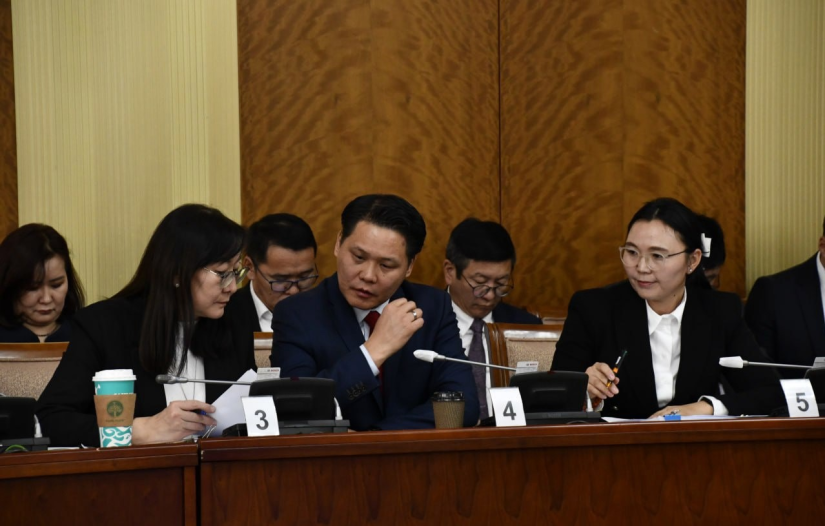
State Secretary of the Ministry of Education and Science (MES) L. Tsedevsuren noted that in 2024 the MES has allocated MNT 250 billion for gender-sensitive budgeting. The State Secretary emphasized that the policy of the MES aims at creating equality and accessibility at the sectoral level, eliminating discrimination, especially ensuring an equal environment and learning conditions for children. The State Secretary stated that in 2022, the MES tasked a team of external experts to evaluate all textbooks for grades 1-12 in secondary schools, and relevant corrections and updates have been made in the textbooks this academic year to be distributed to students. Speaking about gender-sensitive budgeting, Deputy Minister for Labour and Social Protection S. Zulpkhar emphasized the program worth of MNT 90.6 billion which is being implemented by the Employment Promotion Fund of Mongolia in 2023 as well as integration of gender-sensitive budgeting methodology.
State Secretary of the National Committee on Gender Equality T. Enkhbayar stated that the report on the implementation
of the Gender Equality Law in the Ministries, in the capital city, in 21
aimags and in 9 districts was assessed by 41
indicators. According to the assessment, out of 16 Ministries, the Ministry
of Justice and Internal Affairs, Ministry of Construction and
Urban Development, Minister for Labour and Social Protection and Ministry of
Foreign Affairs were assessed with more than 50 percent of implementation and implementation
of the Gender Equality Law in most of the
Ministries is below 50 percent. The newly established Ministries’ assessment
results were unsatisfactory as well.
State Secretary
T. Enkhbayar noted the absence of state-owned organization that conducts
research specifically on gender issues, but a team of national experts
affiliated with the National
Committee on Gender Equality conducts
research in collaboration with academics and universities. The National Academy
of Governance, which trains civil servants, is diversifying its training
programs. He also announced the creation of the Center for Gender Research at the
National University of Mongolia on the initiative of the Speaker of State Great
Khural G. Zandanshatar. The State Secretary stated about ongoing collaboration
with the Mongolian National Chamber of Commerce and Industry, the Confederation of Mongolian Trade Unions, and the Mongolian Employers' Federation in
implementing gender-sensitive policies in the workplace.
Speaking about the average life
expectancy of men, Acting State Secretary of the Ministry of Health S.
Tugsdelger noted that the main reason the
average life expectancy for Mongolian men is 65 years, which is 9.5 years shorter than women is
alcohol consumption, violence, accidents and the reluctance of regular visits to a
doctor for a medical check-up. He emphasized that the main measure to increase
the average life expectancy of men is to reduce alcohol consumption.
Minister for Labour and
Social Protection Kh. Bulgantuya noted that the
average wage growth reflected in the budget is estimated to be 10 percent
for healthcare workers and 20 percent for public service workers. She stated
that the decision to increase civil servants' salaries by 20-40 percent will
have a concrete effect in reducing the shortage of local human resources.
In connection with the report on the implementation of the Gender Equality Law, the Chairman of the Standing Commission on Social Policy P. Anujin highlighted two issues, which are all ministries should conduct an assessment study shortly on possible negative consequences of the removal of the article and provisions on punishment for sexual harassment in the workplace and submit to the Standing Committee on Social Policy; make suggestions on policies and measures to be taken to improve the living conditions of citizens and reduce alcoholism as it was concluded the 9.6 point difference in life expectancy of men and women is caused by health-risk behaviours, alcoholism, and low income.
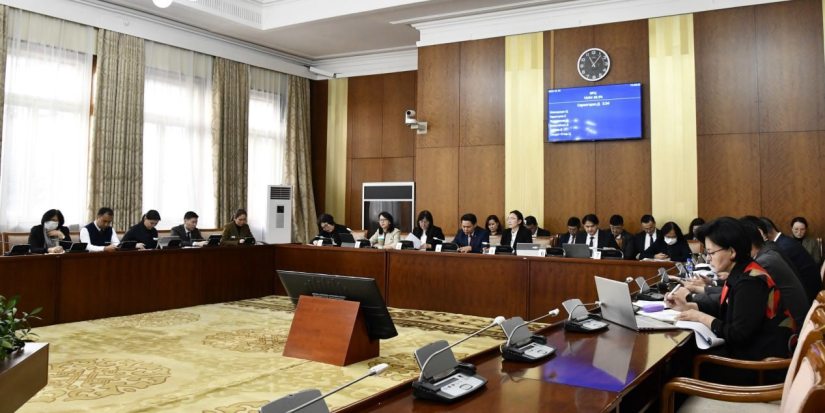
 Ulaanbaatar
Ulaanbaatar



















